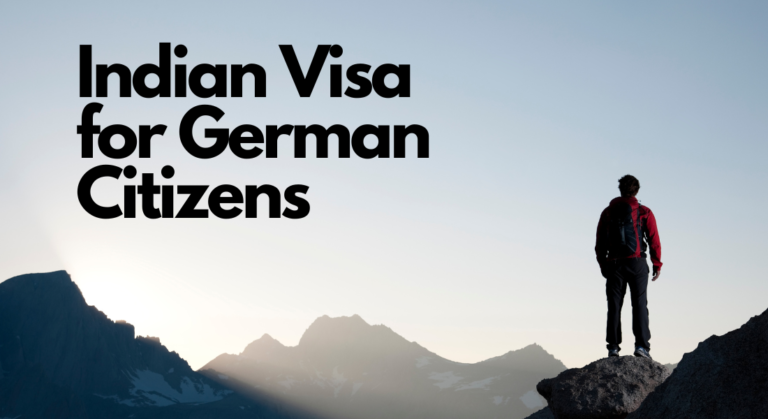
Types of Indian Visas Available for German Citizens
German citizens planning to travel to India can choose from several types of visas, each tailored to specific purposes and requirements. Understanding these different visa categories is essential for ensuring compliance with Indian immigration laws and making travel arrangements smoother.
The most commonly sought visa is the tourist visa, which allows individuals to explore the cultural and historical wonders of India. This visa is typically valid for a stay of up to 180 days, depending on the specific terms granted at the time of application. It is important for German citizens to note that this visa is non-extendable and primarily issued for leisure purposes.
Another significant category is the business visa, which is intended for those who travel to India for business-related activities, such as attending meetings, conferences, or establishing business relations. This visa can vary in duration, often allowing stays of up to five years but generally limited to 180 days per visit. Eligibility criteria include proof of business engagements and financial stability.
For German students wishing to pursue education in India, the student visa is required. This visa is valid for the duration of the study program and can be extended if necessary. Applicants must provide an acceptance letter from a recognized educational institution in India and proof of sufficient financial resources for living and studying.
Additionally, the e-visa has gained popularity for its convenience. German citizens can apply for an e-tourist, e-business, or e-medical visa online, allowing for a simplified application process. Generally, this visa is available for stays of 30 to 90 days, with specific entry points in India designated for e-visa holders.
Application Process for Indian Visas
The application process Indian Visa For GERMAN CITIZENS can be systematic and straightforward if one follows the established steps and guidelines. Firstly, it is essential to determine the type of visa required based on the purpose of the visit, such as tourism, business, or study. It is crucial to provide accurate information and ensure that all details are complete to avoid delays or rejections. After completing the form, applicants must print it out for submission along with the required documents.
Documentation typically required includes a valid passport with at least six months of validity beyond the intended stay, recent passport-sized photographs adhering to specified guidelines, and proof of travel arrangements such as flight bookings. Additionally, applicants may need to present financial statements or a letter of invitation from contacts in India, depending on the visa category.
To streamline the application process, applicants should double-check all documentation for completeness and accuracy, as incomplete applications are a common cause of delays. Furthermore, it is beneficial to stay informed about any updates or changes in visa regulations that may impact the application process. By diligently following these steps, German citizens can ensure a successful application for an Indian visa.
Processing Time and Important Considerations
The processing time for Indian visas can vary based on the type of visa applied for by German citizens. Typically, a tourist visa may take between 3 to 5 business days, while a business visa could take longer, usually up to 7 business days. It is advisable for applicants to factor in potential delays and apply well in advance of their intended travel dates.
One key consideration is the completeness of the visa application submitted. An incomplete application can result in significant delays, as it may be sent back for additional information or documentation. German citizens should ensure that all required documents, including photographs and passport copies, are included and meet the necessary specifications.
Overstaying a visa in India can lead to serious repercussions, including fines, detention, and even a ban on re-entry. Therefore, it is crucial for visitors to be aware of their visa validity and adhere strictly to the prescribed duration of stay. Should an unforeseen circumstance arise that may lead to overstaying, it is recommended to contact the local Foreigners Regional Registration Office (FRRO) to discuss possible solutions and avoid complications.
Applicants are provided with a tracking number upon submission, allowing them to monitor their visa’s progress. This ability to check the status can alleviate concerns and provide applicants with timely updates regarding any delays or issues that may arise during the processing period.
Travel Tips and Cultural Insights for German Citizens Visiting India
Understanding local customs and etiquette is essential for a smooth journey. Indian Visa For GHANAIAN CITIZENS, greeting people with a warm “Namaste,” a gesture that combines hands pressed together at the chest, is not only polite but also culturally significant. This simple action initiates interactions positively, making it a recommended practice for visitors.
When it comes to health and safety, German travelers should consider travel insurance that covers medical emergencies. Keeping a stock of necessary medications before the journey is also advisable, as specific medicines may not be readily available in all areas. It’s prudent to consult health professionals regarding required vaccinations prior to departure. Visitors should also stay hydrated, particularly in warmer climates, and adhere to guidelines when trying street food—a popular yet sometimes unpredictable culinary experience.
Understanding local customs is vital for respecting cultural norms. For instance, when visiting religious sites, it is customary to remove footwear and dress modestly. This reflects the Indian value placed on cleanliness and respect for sacred spaces. Being aware of the local festivals and traditions can also enhance engagement with the community, allowing German travelers to partake in genuine cultural experiences.
Moreover, learning a few key phrases in Hindi can immensely improve communication and show respect towards the local population. Simple words such as “Shukriya” (thank you), “Kripya” (please), and “Aap kaise hain?” (how are you?) can foster goodwill. Lastly, keeping an open mind and embracing the diverse cultural tapestry of India will surely result in a more fulfilling travel experience for German citizens. Ultimately, preparation and cultural sensitivity can lead to a profound connection with this vibrant nation.